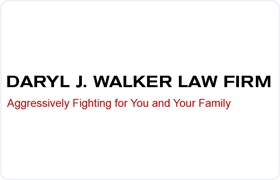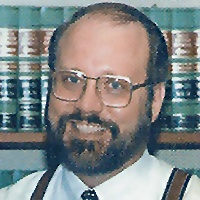 Midway White Collar Crime Lawyers, Georgia
Midway White Collar Crime Lawyers, Georgia
Sponsored Law Firm
-
 x
x

Click For More Info:
-
Daryl J. Walker Law Firm
202 West 35th Street Savannah, GA 31401» view mapCriminal Defense Aggressively Fighting for You and Your Family
When you find yourself in need of a criminal defense attorney, you can be confident that Daryl Walker has what it takes to win your case.
800-846-0571
Not enough matches for Midway White Collar Crime lawyer.
Below are all Midway Criminal lawyers.
Sponsored Lawyers
1-10 of 10 matches
Criminal, DUI-DWI, Adoption, Military, Traffic
Born in Ilion, New York, Attorney Chester J. "Chet" Gregg graduated from the State University of New York, College at Oswego in 1993 with a B.S. in Secondary Education. In 1995 Mr. Gregg moved to Boston, Massachusetts and attended law school at the New England School of Law. As a law student Mr. Gregg worked with multiple government organizations including the Massachusetts Attorney General's Office and the Committee for Public Counsel Services (public defender). Mr. Gregg also gained experience in personal injury law through employment at the law firm of Roche, Heifetz, Murphy & Wholley, in Boston, MA, and at the law offices of Kenneth Halpern and Associates in Newton, MA. Mr. Gregg also served as a Case & Note Editor for the New England Law Review. Mr. Gregg graduated from law school in 1998, Magna Cum Laude. After law school Mr. Gregg was employed by a small computer software company, Forefield, Inc., in Worcester, Massachusetts. While at Forefield Mr. Gregg worked as a staff writer, production manager and worked on various corporate legal matters. In 2000 Mr. Gregg moved to San Antonio, Texas where he was employed at Standard Aero, Inc., as a government contracts specialist. Mr. Gregg joined the U.S. Army JAG Corps in 2001 and was stationed with the 3d Infantry Division at Fort Stewart, Georgia. Mr. Gregg initially served as a legal assistance attorney helping soldiers resolve consumer issues such as a landlord tenant law and military administrative issues. He then served as a military prosecutor for the next two years, trying cases involving drug use, assault, firearms, desertion and theft. Mr. Gregg deployed to Kuwait and Iraq with 2d Brigade, 3d Infantry Division, and was the first military JAG to arrive in Baghdad in April 2003. In May 2004 Mr. Gregg was appointed to be a Special Assistant United States Attorney (SAUSA) responsible for prosecuting civilian crimes under Federal Law committed on Fort Stewart and Hunter Army Airfield. In that role Mr. Gregg prosecuted a wide variety of crimes ranging from driving under the influence (DUI) to attempted murder. His most notable case involved the prosecution of a civilian working as a contractor in Iraq under the Military Extraterritorial Jurisdiction Act (MEJA). Mr. Gregg's military awards include the Bronze Star Medal, the Meritorious Service Medal, the Army Commendation Medal, the Army Achievement Medal, the National Defense Service Medal, the Armed Forces Expeditionary Medal, the Global War on Terrorism Service Medal, the Iraq Campaign Medal, the Overseas Service Ribbon, the Army Service Ribbon, and the Combat Action Badge. Mr. Gregg is admitted to the state bars of Massachusetts, Florida, and Georgia. He is also admitted to the Federal District Court for the Southern District of Georgia, the Federal District Court for the Middle District of Florida, the 11th Circuit Court of Appeals, and the United States Supreme Court.
(more)


 Daryl Walker Savannah, GA
Daryl Walker Savannah, GA AboutDaryl J. Walker Law Firm
AboutDaryl J. Walker Law Firm

